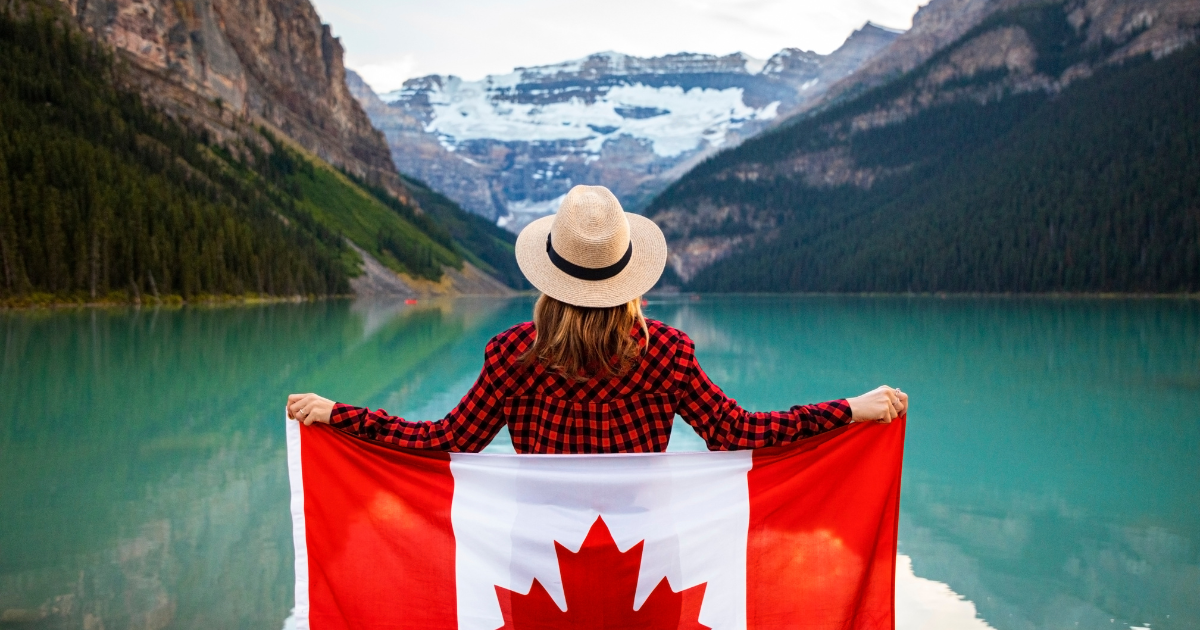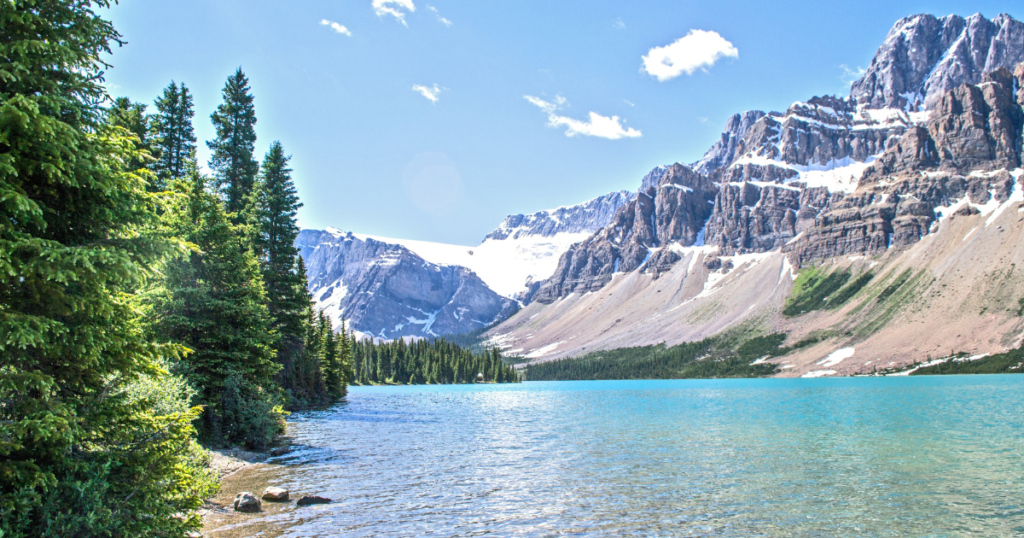Just like every other place, living in British Columbia, Canada’s westernmost province, offers a blend of benefits and drawbacks.
In this post, we shall look at life in British Columbia and the pros and cons of living in the province.

Living in British Columbia: An Overview
Living in British Columbia, Canada, offers a rich blend of natural beauty and urban sophistication.
The province boasts diverse landscapes from lush coastal areas to rugged mountains, appealing to outdoor enthusiasts with activities like hiking, skiing, and kayaking.
The climate varies, with mild, rainy conditions along the coast and more extreme seasons inland. Economically, BC thrives on technology, tourism, and trade, especially in vibrant cities like Vancouver.
However, these urban centers also face high living costs, notably in housing. Cultural diversity is a hallmark, with a significant Asian influence enriching the food and cultural scene.
Education and healthcare systems are robust, though some areas experience longer wait times for medical services. Urban areas enjoy efficient public transport, while rural zones often require personal vehicles.
Residents of BC typically enjoy a high quality of life, balancing work with an emphasis on wellness and outdoor activities, set against a backdrop of progressive governance and environmental stewardship.
The Pros of Living in British Columbia
Living in British Columbia (BC), Canada, offers a range of benefits that make it an attractive place to reside. These advantages highlight the province’s unique qualities, from its natural beauty to its economic opportunities:
1. Stunning Natural Beauty and Outdoor Recreation: BC is renowned for its diverse landscapes, including coastal areas, mountains, forests, and lakes. This natural setting provides abundant opportunities for outdoor activities like skiing in Whistler, hiking in the Rocky Mountains, and kayaking along the Pacific coast.
2. Mild Climate: Particularly in coastal areas like Vancouver and Victoria, BC experiences a more temperate climate compared to other parts of Canada. Winters are milder and less harsh, making it more comfortable for those who prefer a gentler climate.
3. Cultural Diversity and Vibrant Cities: BC’s cities, especially Vancouver, are celebrated for their multiculturalism. This diversity is reflected in the food, festivals, and cultural events, offering residents a rich cultural experience.
4. Strong Economy with Diverse Opportunities: The province’s economy is diverse, with strong sectors in technology, film and TV production, tourism, and natural resources. Cities like Vancouver are also known for their thriving tech and startup scenes, providing ample job opportunities.
5. High Quality of Life: BC generally offers a high standard of living, with access to excellent healthcare, education, and well-developed urban infrastructure. The province consistently ranks high in terms of livability and quality of life.
6. Education and Research Opportunities: Home to top-ranking universities such as the University of British Columbia and Simon Fraser University, BC is a hub for educational excellence and research opportunities.
7. Healthcare Accessibility: BC provides high-quality healthcare services with a universal healthcare system. Major cities like Vancouver and Victoria have well-equipped hospitals and a range of specialist healthcare services.
8. Environmental Consciousness: BC is a leader in environmental sustainability, with initiatives to protect its natural landscapes and promote green living. The province’s focus on renewable energy and conservation efforts reflects its commitment to the environment.
9. Thriving Arts and Culture Scene: The province, particularly cities like Vancouver and Victoria, has a vibrant arts scene, including theaters, galleries, and music. Festivals and cultural events throughout the year celebrate the artistic diversity of the region.
These advantages make BC an appealing destination for many, offering a combination of natural beauty, economic opportunities, cultural richness, and a commitment to sustainability and quality of life.
However, while there are dozens of benefits to living in BC, there are also some drawbacks. Let’s look at the drawbacks of living in British Columbia.
The Cons of Living in British Columbia, Canada
While British Columbia (BC) offers many advantages, there are also several drawbacks to living in this Canadian province:
1. High Cost of Living: Particularly in major urban centers like Vancouver and Victoria, the cost of living is significantly high. Housing prices and rents in these areas are among the highest in Canada, making affordability a major concern for residents.
2. Traffic and Congestion: In cities like Vancouver, traffic congestion can be a significant issue. High population density and limited road space lead to frequent traffic jams, especially during rush hours.
3. Rainy Weather: The coastal regions of BC, particularly in and around Vancouver and the Lower Mainland, experience a high amount of rainfall. The frequent and sometimes prolonged rainy periods can be a downside for those who prefer sunnier climates.
4. Earthquake Risk: BC is located in a seismically active zone, particularly along the Pacific Coast. This brings a risk of earthquakes, which is a concern for residents regarding safety and property.
5. Limited Affordable Housing: The housing market in many parts of British Columbia is highly competitive and expensive. This can make it challenging, especially for middle and low-income families, to find affordable housing.
6. Isolation of Remote Areas: Some areas, particularly in the northern and interior regions of BC, can be quite remote. This isolation can mean limited access to certain amenities and services, as well as longer travel times to major urban centers.
7. Job Market Concentration: While there are opportunities in sectors like technology and natural resources, the job market in certain industries can be concentrated in specific areas. This may limit employment options for people in other fields or those who live outside of the major urban centers.
8. Healthcare Access in Remote Areas: While urban areas boast excellent healthcare facilities, access can be more limited in rural or remote parts of the province. This can be a concern for those seeking regular medical care or specialist services.
These cons represent the challenges and considerations that come with living in British Columbia, from the financial aspects of high living costs to the geographical considerations of weather and seismic activity.
Top 5 Areas With More Job Opportunities in BC
British Columbia (BC) offers a range of job opportunities across various sectors, with certain areas being hotspots for specific industries.
Here are some of the key areas in BC known for more job opportunities in their respective fields:
1. Vancouver
-
- Technology: A major hub for tech companies, including startups and global firms specializing in software development, biotech, and green tech.
- Film and Television Production: Known as “Hollywood North,” Vancouver offers numerous opportunities in film production, animation, and special effects.
- Finance and Business Services: Hosts a significant number of financial institutions and corporate headquarters.
2. Victoria
- Technology: The city has a growing tech sector, particularly in software and technology startups.
- Tourism and Hospitality: Being the provincial capital and a popular tourist destination, there are numerous opportunities in hotels, restaurants, and travel services.
3. Kelowna and the Okanagan Valley
- Wine and Agriculture: Famous for vineyards and agriculture, providing opportunities in winemaking and agribusiness.
- Tourism: The Okanagan Valley is a major tourist destination, especially in the summer, offering jobs in hospitality and tourism-related services.
4. Burnaby
- Technology and Industrial: Home to tech companies and industrial parks, Burnaby offers jobs in various tech sectors and light industries.
- Retail and Commerce: Hosting major shopping centers and business parks.
5. Surrey
- Construction and Development: With rapid urban development, there’s a demand for jobs in construction, urban planning, and related services in Surrey.
- Healthcare and Education: The expanding population leads to opportunities in new healthcare facilities and educational institutions.
Related: First-Time Home Buyer Tips In British Columbia (Ultimate Guide)



